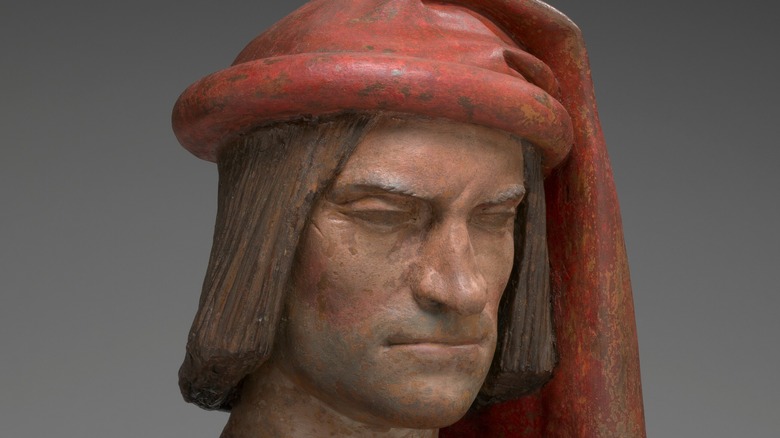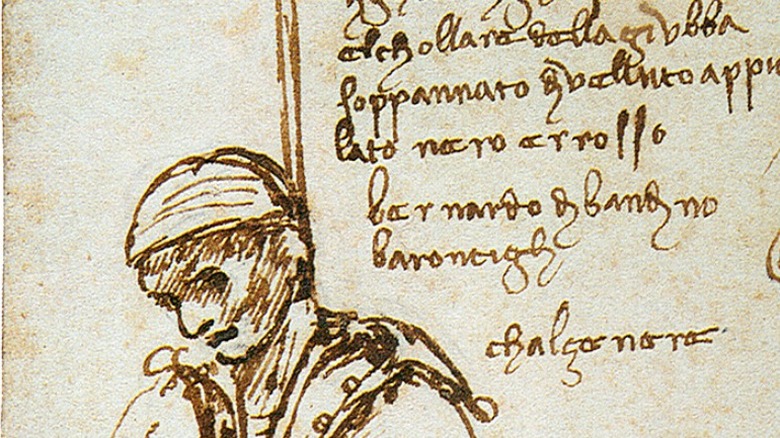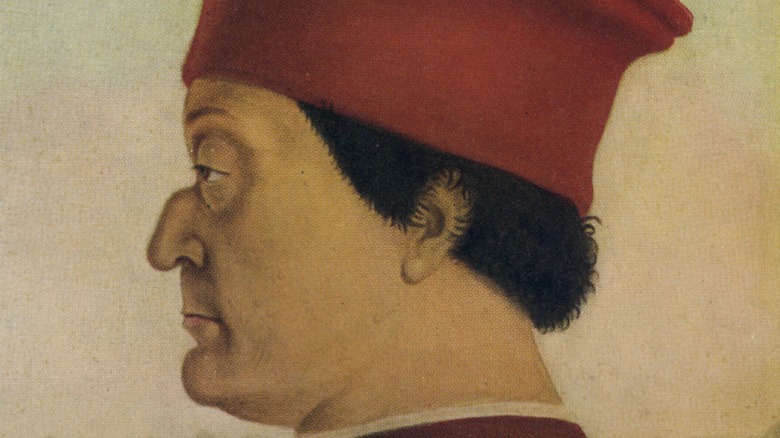What Was The Pazzi Conspiracy?
On the morning of Sunday, April 26, 1478, Lorenzo de' Medici and his younger brother, the handsome and well-liked Giuliano, attended mass at the Cathedral of Santa Maria del Fiore, also known as the Duomo, in Florence. The priest raised the host and the sanctuary bells rang out. This architectural masterpiece filled with Renaissance treasures suddenly became a chaotic and bloody scene as two priests pulled out blades and attacked Lorenzo, the Florentine city-state's de facto ruler known as "the Magnificent." One priest only managed to knick Lorenzo's neck with his weapon before Lorenzo pulled out his sword and counterattacked and then made it to safety, according to ReidsGuides.com.
At the same time, two other men, Francesco Pazzi and Bernardo Baroncelli, rivals of the Medici family, attacked Giuliano. "Here, traitor!" Baroncelli shouted, as he stabbed Giuliano in the chest. Pazzi followed up with a frenzied attack with his blade, per "April Blood: Florence and the Plot Against the Medici." Giuliano collapsed on the cathedral floor and died from 19 stab wounds.
What had been behind this brutal attack?
While the conspirators staged their attack inside the Duomo, Archbishop Francesco Salviati of Pisa and a small band of armed men attacked Florence's city hall but the Florentines overwhelmed and captured them, according to "Papal Bull: Print, Politics, and Propaganda in Renaissance Rome." The conspirators had believed the residents of Florence would rise up against the Medici family. Instead, they hanged every one of the killers and co-conspirators they could lay their hands on.
Since 1434, the Medici family, wealthy bankers, had ruled Florence, with Lorenzo de' Medici and his brother Giuliano ascending as rulers in 1469, per History and Britannica. Lorenzo was a poet and patron of the arts, supporting Leonardo da Vinci and Michelangelo, among others. But he and his brother had made many powerful enemies along the way, especially the Pazzi family, another influential Florentine dynasty involved in banking, per History On This Day. It wasn't only the Pazzi family who wanted the Medici brothers dead. Pope Sixtus IV also had issues with them and unofficially backed the plan to murder Lorenzo and his brother.
A decoded letter reveals a secret conspirator
When Pope Sixtus IV learned of the assassination plot led by the Pazzi family, he declined to actually help in the murders, but remarked, " ... I would not have [Lorenzo de' Medici's] death, but only a change of government," according to "A History of the Papacy from the Great Schism to the Sack of Rome." Lorenzo had refused to loan money to the pope and the two men again butted heads over Sixtus IV's appointment of Francesco Salviati as archbishop of Pisa, which the Medici family refused to acknowledge, and which led Salviati to participate in the conspiracy, per Ultimate History Project.
It wasn't until 2001 that another of the conspirators, possibly its mastermind, came to light, when the historian Marcello Simonetta discovered a coded letter he deciphered, according to his 2008 book "The Montefeltro Conspiracy: A Renaissance Mystery Decoded." The letter showed that Federico da Montefeltro, Duke of Urbino, who historians have always portrayed as a humanist, had been in on the plot to kill his friend Lorenzo de' Medici.


